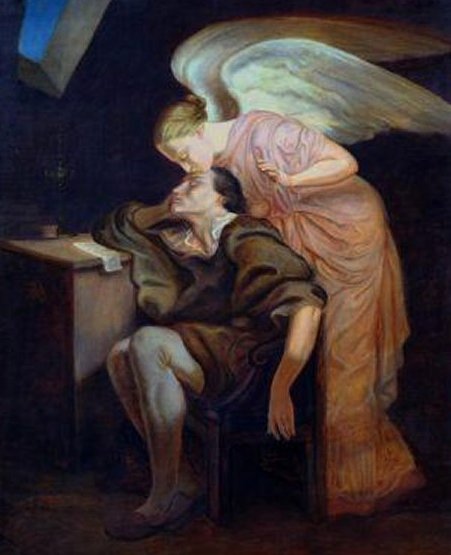The New York Times last week ran a fascinating article on how “poetry kept my patient alive.” Steve (not his real name) was suffering from schizoaffective disorder, which therapist Ruth Livingston describes as “a condition somewhere between schizophrenia and bipolar.” Livingston says that Steve
used his writing to keep himself alive, to soothe himself when spinning out of control, and even to fuel his psychosis when he drifted into madness. Most of all, however, poetry kept him connected to others.
Because Livingston took Steve’s poetry seriously, it also enhanced their therapy session.
Steve had had a long history of hospitalizations and various treatments, including electroshock. He was 65 when Livingston inherited him from another therapist and it took her a while to adjust to his poetry obsession:
We settled into a strange dynamic: Try as I might to get Steve off the subject (and believe me, I tried), Steve was most interested in exploring poetry. His mission was to train me to be his eager and attentive apprentice first, and then to be an admiring audience. Steve was the professor, I the student. Aware that I sometimes wrote professionally, he badgered me to write poetry while acknowledging it was no easy task:
A poet waits for the light
Waits for the night,
Waits for the night’s lights (the stars).
A poet waits for divine madness.
He lugged poetry books to his sessions and regaled me with his favorites: Shakespeare, T. S. Eliot, Emily Dickinson, Dylan Thomas, Robert Browning, Edna St. Vincent Millay, among others. As if teaching a graduate level seminar, he’d take each line and offer his perception of the poet’s intent. Then it was my turn.
Unfortunately for my purposes, Livingston doesn’t mention the specific poems that Steve cited. I’m not at all surprised, however, that the conversations gave her special insights into her patient:
We often disagreed. Steve’s analyses were usually lustier than mine, less intellectualized, always refreshing and unique — a window into his soul. We’d explore his interpretations, looking at associations, considering why certain lines spoke to him and why other lines did not. In fact, poetry quickly became the medium of his therapy, a medium I can liken only to dream analysis.
And further on:
Steve’s poems were full of his pathos, a sorrow that spilled into my office. Poetry — his own and others’ — could make him weep and, in these moments, we plunged into his internal world in depths that eluded my “healthier” patients. In time, I came to know him intimately and to treasure him.
Throughout the therapy, Livingston writes, Steve would say, “I think I’m dying,” prompting her to once impatiently reply, “Steve, we are all dying.” He expressed this fear in a line of his own: “The roses are down-petaled, so they meet their end.” Then, one day, he proved to be right as he was found dead in his apartment.
I love the way that Livingston’s article ends. Just as poetry helped Steve sustain his life, so it came to her aid in this moment of grief:
So, on that day when Steve died, I sat weeping in my office, uncertain how to console myself. I thought of our work together, of the poetry we created in our connection. I thought of what I had given him, what he had given me. I conjured up his warm, sonorous voice and his poems …
With the setting sun, past the rising moon
Beyond the spinning earth, April, May, June
We are tomorrow on its way …
I wondered how to pay him tribute.
What did I do?
I wrote a poem.


